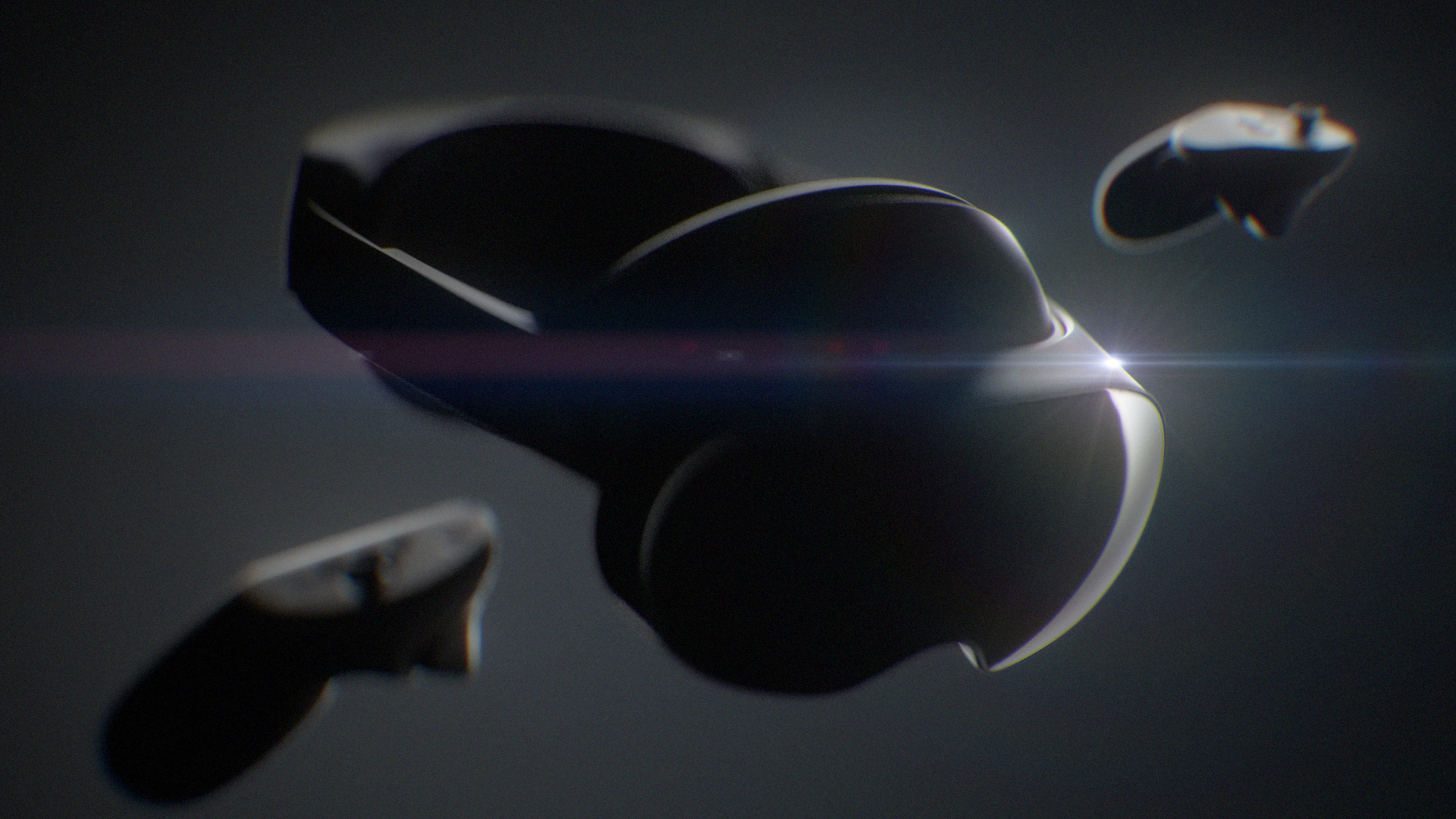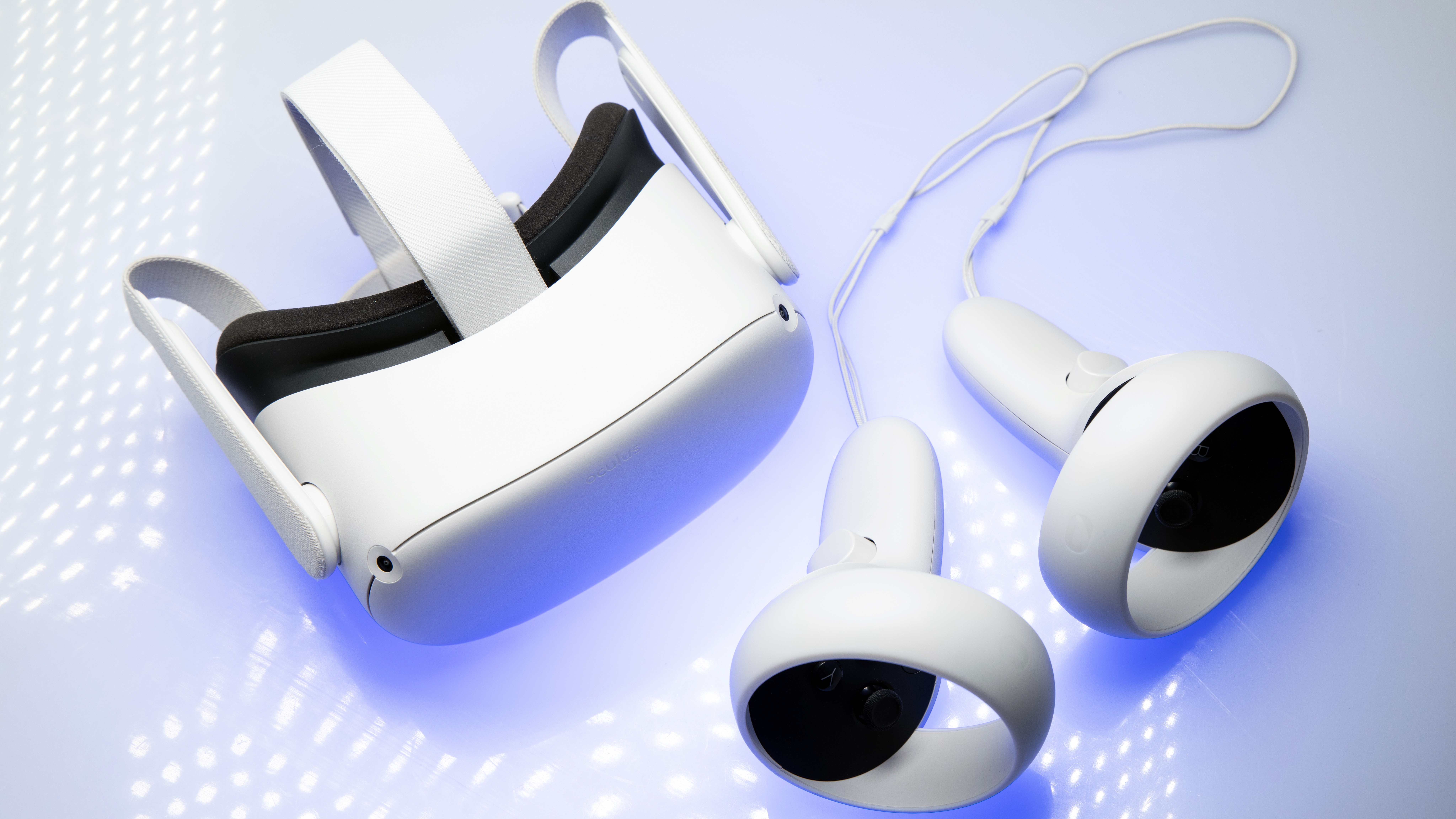Meta’s next VR headset might not replace the Oculus Quest 2 after all
Project Cambria is all about business

Meta’s next VR headset (named Project Cambria) will focus on productivity over playtime, Mark Zuckerberg revealed during a recent Meta earnings call. As such it might not be quite the Oculus Quest 2 (now Meta Quest 2) replacement we expected it to be.
His statement was later reiterated on Zuckerberg’s own Facebook page, where he not only praised the Quest 2’s performance but reaffirmed that Project Cambria will launch this year.
"On the hardware side, Meta Quest 2 continues to be the leading virtual reality headset. Later this year, we'll release a higher-end headset, codenamed Project Cambria, which will be more focused on work use cases and eventually replacing [sic] your laptop or work setup. This premium device will have improved ergonomics and full color passthrough mixed reality to seamlessly blend virtual reality with the physical world."
Project Cambria ... will eventually replace your laptop or work setup.
Mark Zuckerberg
More interestingly though, he went on to say that this “higher-end headset” will move away from gaming to “be more focused on work use cases”. Over time, the Meta CEO hopes that it’ll replace our laptop and work setup.
That being said, the new VR device won’t completely abandon Oculus’ gaming heritage.
Later on in his statement, Zuckerberg said that Meta’s new hardware is built to provide “the best metaverse experience – whether you're playing a game or meeting with co-workers in Horizon Workrooms.”
To achieve this Project Cambria will build upon the Quest 2’s existing infrastructure, but will also incorporate new hardware. Divulging a few more details about what this will entail Zuckerberg explained that this new device will offer “improved ergonomics” and “full-color passthrough mixed reality”.
Get daily insight, inspiration and deals in your inbox
Sign up for breaking news, reviews, opinion, top tech deals, and more.
Currently, the Quest 2 only offers greyscale mixed reality – and the live feed of the real world around you is a little grainy to boot. This improved performance will almost certainly mean Cambria will offer a superior mixed reality performance compared to what Meta’s current hardware can provide.

Beyond this, Cambria will also use new eye and face tracking features to enhance its ability to recognize a user’s facial expressions to then relay them in VR. Being able to recreate these kinds of social cues will be vital as Meta develops its digital social spaces in the metaverse. Without them, its virtual hubs could wind up feeling impersonal and devoid of actual emotion.
There’s still no word on exactly when Project Cambria will be released, though being a less consumer-related device may mean we won’t have to wait until the holiday season to try it out for ourselves. New gaming hardware usually drops around October or November to create excitement – and drive sales – in the run-up to the December holidays.
That's exactly when the Xbox Series X, PS5, and Meta's own Quest 2 each were released.
With Cambria looking less and less like a device we can expect to find under our Christmas trees and more like a device that will replace board rooms and office spaces, there’s less of an incentive for Meta to delay its release.
We’ll have to wait and see what Meta announces though, but whenever its next VR headset drops – be it Project Cambria or the Oculus Quest 3 – we’ll be sure to keep you up to date on all the latest info.

Hamish is a Senior Staff Writer for TechRadar and you’ll see his name appearing on articles across nearly every topic on the site from smart home deals to speaker reviews to graphics card news and everything in between. He uses his broad range of knowledge to help explain the latest gadgets and if they’re a must-buy or a fad fueled by hype. Though his specialty is writing about everything going on in the world of virtual reality and augmented reality.